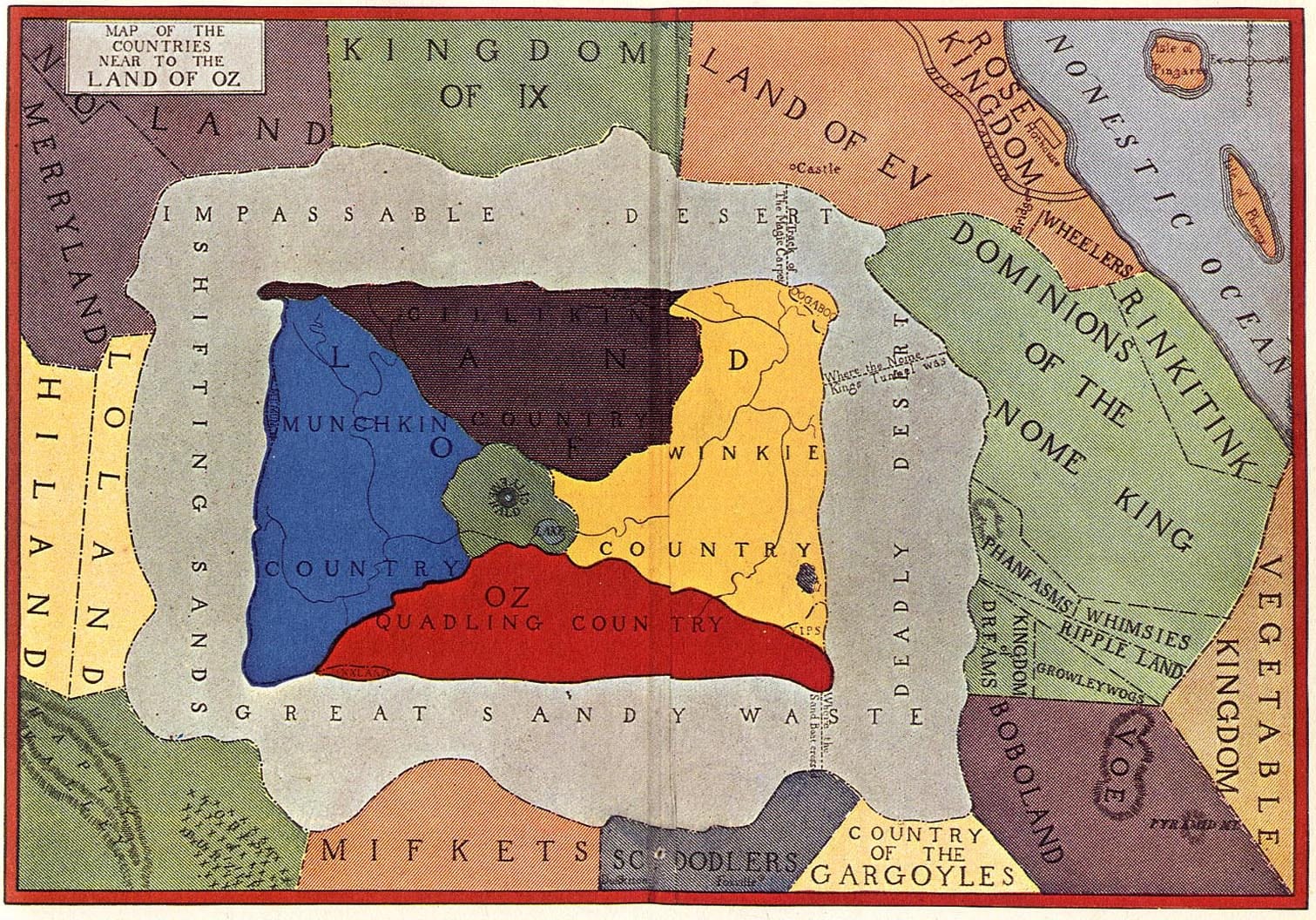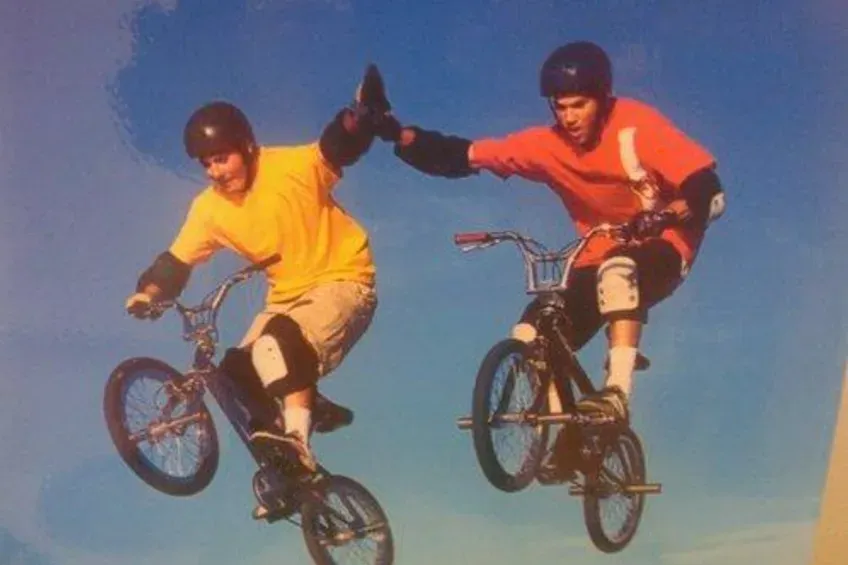The Wizard of Oz was already subversive
Wicked is coming back. You know what Wicked is.
It's hard for me to assess the first Wicked movie's effectiveness. I saw the play twice when I was in high school and loved it then, but didn't find much to hold onto in the film adaptation. I don't know if that's because I now expect all of its subversions of the source material or if those subversions just weren't as thrilling as I found them at 15. Is it clever to make the wicked witch good and the good witch a fascist tool? I'm asking because I've heard this joke before and don't know whether the punchline would work if I heard it for the first time.
I liked the musical at least in part because I liked the L. Frank Baum books. I've been meaning to revisit them for at least the last fifteen years. Something you wouldn't get if you only saw the original MGM movie (which, surprise, I like) is that Baum kept aggressively expanding Oz's scope as the sequels continued. Dorothy fell into the middle of the Earth, she traveled to a kingdom beyond Oz called Ev, she took a backseat to other protagonists. I still remember looking at this map printed in one of the sequels' end pages and having my mind blown:

That big journey I'd read about was contained in the rectangle in the map's center, but there were whole kingdoms beyond Oz. There was a Nome King, a Vegetable Kingdom, some shit called Mifkets. It was exciting, wondering what was in the Great Sandy Waste that separated Oz from its neighbors.
I remember the feeling in part because I read these books in order and had no idea what would be happening in them. I hadn't absorbed anything about Boboland through osmosis because, even though these books had already been in print for a century, even the biggest fan of The Wizard of Oz doesn't know what Boboland is.
The movie is, of course, one of the most famous movies of all time. Every few years, list websites realize The Wizard of Oz may have invented graphic t-shirts. It may as well have invented color photography or the musical for how important it is. You cannot overestimate the influence The Wizard of Oz has had on every inch of culture. Wicked is able to sit at an astonishing level of success because it's subverting a story we're all familiar with, playing with storylines everybody knows by heart. Avatar 3 could make a trillion dollars at the box office and it still wouldn't be as much a part of the texture of the world as The Wizard of Oz has become.
And so it's hard to remember that the revelation that the Wizard is just some dude fooling everybody is a twist. You can look up "biggest movie twists" or whatever and none of the lists that pop up will mention The Wizard of Oz. Like Darth Vader being Luke's father, it's almost too famous to be considered a twist.
But doesn't that change so much about the movie? That everybody idolizes a fraud, that the most powerful being in that world is a snake oil salesman? Isn't that a gear-shift moment that expresses how much of the nonsense you've been watching really is just nonsense and isn't part of some greater, more logical system? I thought about this as I watched Wicked last year and the movie tried to play off its revelation about the Wizard's identity as a surprise, like "Pay no attention to the man behind the curtain" hasn't been in the air since 1939.
As ridiculous as it is to play the Wizard's twist off as a shock in Wicked, it also lays bare the deficiencies of a plot that flips the good-bad alignments of two of The Wizard of Oz's main characters. So what? The original book flipped the significance of its title character 125 years ago. I had thought Wicked the movie didn't work for me because Wicked the play had already been effective. I'm realizing that the entire Wicked enterprise rests on the presumption its audience knows what happens in the thing it's subverting but has forgotten that thing was itself subversive. It's a twist on a twist, like four right turns that just bring you back to your initial direction. And also I don't think Ariana Grande is a good actor.
